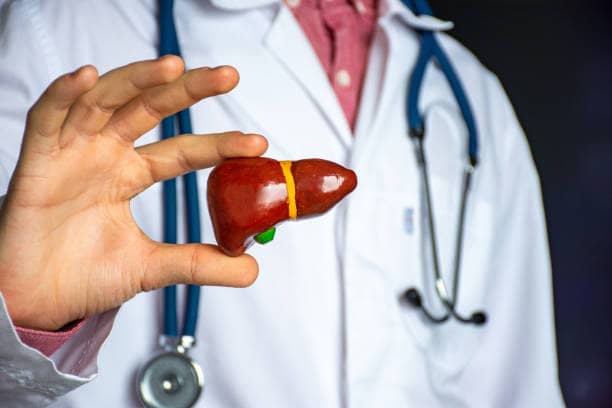How to Treat Pneumonia : Pneumonia is characterized by the inflammation of the air sacs in the lungs, often filled with fluid or pus. Common symptoms include cough, shortness of breath, chest pain, fever, and fatigue. It can be caused by a range of microorganisms, with bacterial and viral infections being the most prevalent.
Understanding Pneumonia:
Pneumonia is an infection that inflames the air sacs in one or both lungs. It can be caused by various microorganisms, including bacteria, viruses, and fungi. Common symptoms include cough, fever, chills, difficulty breathing, and chest pain. Pneumonia can range from mild to severe, and the treatment approach may differ based on the severity and the underlying cause.
Antibiotics for Bacterial Pneumonia: If the pneumonia is bacterial in nature, antibiotics are the primary line of treatment. The choices of antibiotics depends on the type of bacteria indentified and its sensitivity to specific drugs. It’s important to complete the full course of antibiotics, even if symptoms improve, to ensure complete eradication of the infection.
Antiviral Medications for Viral Pneumonia: In cases of viral pneumonia, caused by viruses such as influenza or respiratory syncytial virus (RSV), antiviral medications may prescribed. These drugs help reduce the severity and duration of the illness. Supportive treatment, including rest, hydration, and over-the-counter medications to manage fever and discomfort, is also important.
2. Diagnostic Approaches:
Accurate diagnosis is the first step in effective pneumonia treatment. Clinicians use a combination of medical history, physical examination, and diagnostic tests to determine the underlying cause of pneumonia.
Diagnostic Tests:
- Chest X-rays: These help visualize the extent and location of lung inflammation.
- Blood Tests: A complete blood count (CBC) can reveal elevated white blood cell counts, indicating an infection.
- Sputum Test: Collecting a sample of mucus from the lungs can identify the causative agent and helps the healthcare professional to identify the virus clearly.
- PCR Tests: Polymerase chain reaction tests can detect the genetic material of specific pathogens like viruses.
3. Treatment :
Treatment for pneumonia primarily depends on the causative agent, the severity of symptoms, and the patient’s overall health.
Bacterial Pneumonia:
- Antibiotics: Bacterial pneumonia is often treated with antibiotics. The choice of antibiotic depends on the suspected bacterium and its sensitivity to different drugs. Commonly prescribed antibiotics include penicillin, amoxicillin, and macrolides.
Viral Pneumonia:
- Antiviral Medications: For viral pneumonia, antiviral drugs like oseltamivir (Tamiflu) are prescribed. These drugs can reduce the severity and duration of symptoms.
- Pain and Fever Relief: Over-the-counter pain relievers and fever reducers can help manage discomfort and give you pain-free relief so that you may rest for a while to get fast recovery.
4. Hospitalization and Severe Cases:
In severe cases of pneumonia, hospitalization might be necessary. This is especially true for individuals with compromised immune systems, the elderly, and young children.
Hospital Treatment:
- Intravenous Fluids: Hydration is crucial to maintain oxygen levels and support the body’s immune response.

- Oxygen Therapy: Some patients might require supplemental oxygen to maintain proper oxygen saturation in the blood.
- Mechanical Ventilation: In extreme cases where breathing becomes extremely difficult, mechanical ventilation might be necessary.
Prevention plays a vital role in managing pneumonia, especially in vulnerable populations.
Vaccination:
- Pneumococcal Vaccine: Protects against Streptococcus pneumoniae, a common bacterial cause of pneumonia.
- Influenza Vaccine: Reduces the risk of developing viral pneumonia as a complication of the flu.
Good Hygiene Practices:
- Hand Washing: Regular hand washing helps prevent the spread of infections.
- Respiratory Etiquette: Covering the mouth and nose while sneezing or coughing reduces the release of infectious particles.
Avoiding Smoking and Air Pollutants:
- Smoking damages the lungs and weakens the body’s defense mechanisms against infections.
- Exposure to air pollutants can also increase the risk of respiratory infections.
6. Follow-up and Recovery:
Once treatment begins, patients should follow their healthcare provider’s instructions diligently.
Medication Adherence:
- Complete the full course of antibiotics or antiviral medication as prescribed by the doctor.
Rest : Get plenty of rest to allow the body to recover.
Hydration: Drink fluids to stay hydrated and thin out mucus.
Gradual Return to Normal Activities:
- As symptoms improve, gradually return to daily activities.
7. Special Considerations: Pediatric and Elderly Patients:
Pediatric Patients: Children with pneumonia might need hospitalization to ensure proper monitoring and treatment.Vaccinations are crucial in preventing pneumonia in children.
Elderly Patients: Elderly individuals are more susceptible to pneumonia due to weakened immune systems. Pneumonia vaccines are recommended for senior citizens.
Conclusion:
Pneumonia is a serious respiratory infection that demands prompt and appropriate treatment. While antibiotics are effective against bacterial pneumonia, antiviral drugs play a key role in managing viral pneumonia. Preventive measures like vaccination, good hygiene, and avoiding pollutants contribute significantly to reducing the risk of pneumonia. Timely diagnosis, adherence to medical advice, and proper rest are vital components of a successful recovery. Always consult a healthcare professional for accurate diagnosis and treatment recommendations according to patient needs.








One thought on “How to Treat Pneumonia?”